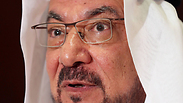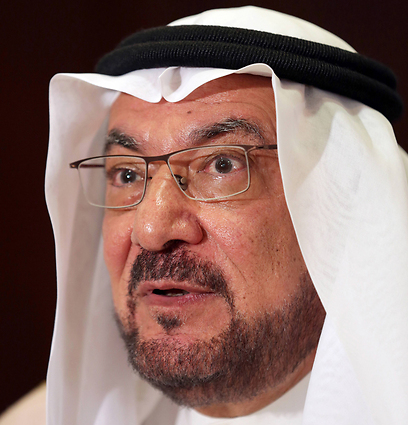
New Islamic Cooperation leader stresses need for peace between Muslims
Iyad Madani: Muslim world requires, 'co-existence, mutual understanding; 'Sectarian religious killing has no victor and if it contiues we will all be losers'.
JIDDAH - The newly appointed head of the world's largest bloc of Islamic countries says he is seeking greater co-existence between Sunni and Shiite Muslims at a time when multiple conflicts have inflamed sectarian hatreds as his organization grapples with the challenge of presenting a unified Muslim voice.
In the Arab world, sectarian tensions between the two main branches of Islam have increased the past decade. In Syria, jihadist fighters from around the world are fighting alongside the country's Sunni majority against President Bashar Assad's Alawite, Shiite-backed minority. Meanwhile, Sunni-Shiite bloodletting in Iraq shows no sign of abating with hardliners on either side.
In both conflicts, rival regional heavyweights - Sunni-led Saudi Arabia and Shiite-led Iran - support opposing sides.
Related Stories
- Will American jihad in Syria lead to a future 9/11?
Sudan says it declined Iran air defense offer after Israeli strike
The secretary-general of the Organization of Islamic Cooperation, Iyad Madani, said, "a new (regional) paradigm" is needed, one that "leads to a situation of co-existence, mutual understanding and common interests."
Madani spoke to The Associated Press in his first interview since officially taking office in January as the head of the organization, which groups 57 member nations from four continents.
"Sectarian violence is among the most important challenges the Muslim world faces," said Madani, who is the first Saudi national to head the organization. He said emphasis on the shared Islamic identity among ordinary Muslims can bring about the new paradigm.
"Sectarian religious killing has no victor and if it continues we will all be losers," he said, speaking at the OIC's headquarters in Saudi Arabia.
Madani said the organization works with religious scholars, governments and international organizations to counter sectarian ideologies and work against extremist organizations.
The organization is also concerned with the protection of Muslim minorities around the world. The OIC sent high-level delegations to Myanmar, where ultra-nationalist movements led by Buddhist monks have forced more than 140,000 Muslim Rohingya from their homes. They have also sent OIC-led teams to the Central African Republic, where Christian militias have displaced entire Muslim towns and villages.
Among the OIC's key tasks, the 68-year-old Madani said, is supporting the Palestinians and the Al-Aqsa Mosque complex in Jerusalem, which is considered Islam's third holiest site.
"We encourage all Muslims from all over the world to go to East Jerusalem and pray in Al-Aqsa and confirm that this mosque is a part of their faith," said Madani, who was recently in the West Bank holding meetings with Palestinian officials.
The idea for the creation of the international Islamic organization, which seeks to represent the worldwide Muslim community, came after a 1969 arson attack that severely destroyed part of the Al-Aqsa Mosque.
Madani criticized Israeli policies that he said are erasing East Jerusalem's Palestinian and multi-religious identity. Israel captured East Jerusalem in the 1967 Mideast war - along with the West Bank and Gaza Strip - and annexed the sector as part of its capital, though its annexation has generally not been recognized internationally. The Palestinians claim East Jerusalem as the capital of a future state.
Madani called Israel's occupation of East Jerusalem an "ugly form of apartheid" - an accusation Israel rejects. He said countries like the US have an important role to play in brokering peace, but cautioned about the influence in Washington of active pro-Israeli lobbying groups.
Muslims believe that the Prophet Muhammad made a miraculous ascension to heaven from the site of the now iconic gold-topped Dome of the Rock in the Al-Aqsa compound. The compound is one of the most sensitive sites in the conflict between Israel and its Arab neighbors. Jews revere the site as the Temple Mount and pray below the mosques at the Western Wall.
Madani's primary role is to seek consensus among the OIC's members, whose heads of state hold summit meetings every three years.
"To be part of something bigger than yourself offers... personal satisfaction and the reward of being involved in a higher mission," he said of the job.
Madani, who began as a journalist in Saudi Arabia, previously served as the kingdom's information minister and as the minister overseeing the annual hajj pilgrimage to Mecca, which put him into direct contact with Muslims around the world.
Madani was born in Mecca and raised in Islam's second holiest city of Medina. He graduated from Arizona State University with a degree in production management in 1969, when there were few universities in the kingdom.
He described the US as "a great country" and said he was influenced by the emergence of the New Left, when students and professors protested against the war in Vietnam and pushed for civil rights.
"It was an optimistic world. I think we all felt we could genuinely rewrite the script to change the world," he said.











